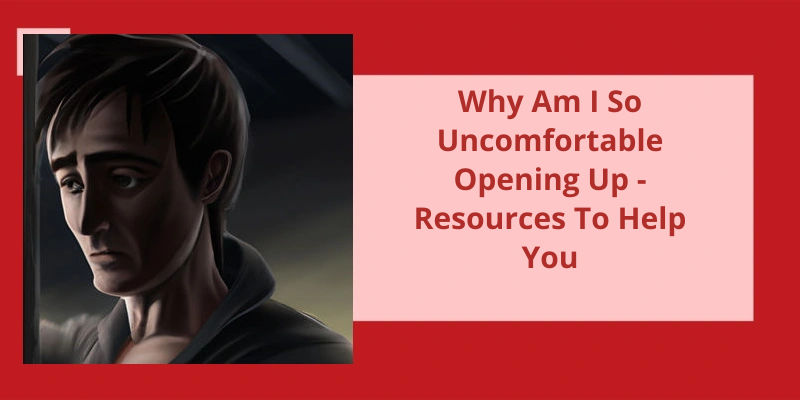As humans, we all have flaws and we make mistakes. However, when someone we care about constantly criticizes us, it can be devastating to our emotional well-being. Feeling constantly judged and belittled by a significant other can lead to self-doubt, insecurity, and resentment. Unfortunately, this is a common issue that many people face in their relationships. Oftentimes, the negativity comes from a place of insecurity, jealousy, or even a desire for control. Regardless of the reasoning, it's essential to address the problem and find a way to communicate effectively with your partner in order to build a healthier, more positive relationship.
What Does Negativity Mean in a Relationship?
Negativity in a relationship can be defined as a persistent pattern of negative behaviors or emotions that influence how both partners feel towards each other. This can come in the form of criticism, blame, contempt, defensiveness, stonewalling, or any other negative emotions that lead to feelings of resentment, anger, or disappointment.
This can lead to a vicious cycle of mistrust and anger, as both partners become less willing to open up and communicate with each other. Instead, they focus on their partners faults and begin to withdraw emotionally. Eventually, this can lead to a breakdown in the relationship, where both partners feel disconnected and unhappy.
When one partner is constantly criticizing or belittling the other, it can create a sense of fear or anxiety that can be paralyzing. This can lead to feelings of inadequacy or powerlessness, which can further compound the negativity in the relationship.
To overcome negativity in a relationship, it’s important to recognize and acknowledge the patterns of negative behaviors that are present. This might involve seeking help from a therapist or counselor who can assist both partners in identifying the underlying causes of the negativity. It’s also essential to communicate openly and honestly with each other, being willing to listen to each others concerns and needs without judgment or criticism. In some cases, it may even be necessary to take a break from the relationship or seek professional help to address the underlying issues.
It’s essential to recognize and address these behaviors and emotions in a constructive and healthy way, in order to foster a happier, more fulfilling relationship. By practicing open communication, empathy, and understanding, both partners can work towards building a stronger and more positive connection with each other.
Identifying Signs of Negativity in a Relationship
- Constant arguing
- Negative language and criticism
- Feeling disrespected
- Lack of trust
- Mind games or manipulation
- Isolation from family and friends
- Physical or emotional abuse
- Feeling constantly stressed or anxious
- Loss of interest in hobbies and activities
- Feeling unhappy or unfulfilled
Dealing with a negative partner in a relationship can be challenging, and finding ways to maintain a positive attitude can seem impossible. However, there are ways to prevent their negativity from affecting you and the relationship. In this article, we’ll explore some tips to help you navigate this tricky situation and bring positivity back into your relationship.
What to Do When Your Boyfriend Is Always Negative?
Having a partner who always has a negative outlook on life can be a challenging experience. You may find yourself constantly questioning your own happiness, struggling to find joy in the relationship, and enduring a barrage of negative comments and criticisms that can wear you down emotionally. However, there are ways to cope with a negative partner and improve the overall quality of your relationship.
One of the first things you need to do when dealing with a negative partner is to learn how to not take their comments and behavior personally. You need to remember that their negativity isn’t a reflection of you or your worth as a person. You should also try to detach yourself emotionally from their negativity, so it doesn’t impact your own well-being. It can be hard to do this, but with time and practice, you’ll likely be able to accomplish it.
You need to focus on your own happiness and not let your partners negativity diminish it. This means that you need to continue doing things that make you happy, even if your partner isnt interested in participating. For example, if you love hiking, continue doing it on your own or with friends, even if your partner doesn’t enjoy it.
It’s also a good idea to try to bring positivity into your partners life. You can try to help them see the good in situations or show them things that make you happy. While this won’t work overnight and may not work in every situation, it’s worth trying. However, you need to make sure that you arent sacrificing your own happiness and mental health to do so. You also need to be patient and understand that this process will take time.
Limiting your own cheerfulness may seem counterintuitive, but it can be helpful when dealing with a negative partner. This doesn’t mean that you should be miserable or unhappy all the time, but rather that you should be mindful of how your positive attitude may come across to your partner. You don’t want to appear dismissive of their negative feelings or make them feel like they’ve to be happy all the time.
How to Know When It’s Time to Leave a Negative Relationship.
It’s important to leave a negative relationship when you consistently feel unhappy, unsupported, or mistreated, and your efforts to communicate and improve the situation have proven unsuccessful. It may also be time to leave if you find yourself compromising your values or giving up on your goals and aspirations. Trusting your instincts and seeking support from loved ones can also help you recognize when it’s time to move on.
It’s important to recognize the underlying causes of constant negativity in oneself and others, as it can take a toll on mental health and relationships. In this article, we will explore the various reasons why a person may exhibit a negative attitude and how to combat it.
What Causes a Person to Be Negative All the Time?
This means that being around negative people can significantly impact our mood and thoughts. It’s important to remember that our thoughts and emotions are interconnected. If we constantly think negatively, we’re likely to feel negative emotions, which can then cause us to think even more negatively.
Another reason a person might be negative all the time is due to past experiences. Traumatic events, such as abuse, neglect or a significant loss, can leave lasting effects on a persons mental state. In some cases, people may develop a pessimistic outlook on life as a way of coping with these experiences.
Additionally, a persons environment can play a significant role in their mood and outlook on life. If someone is constantly exposed to stressful or negative situations, such as a toxic work environment or an unhappy relationship, it’s not surprising that they may develop a negative mindset. In these cases, it’s important to take steps to reduce exposure to negative influences.
Low self-esteem is another common cause of negative thinking. If someone doesn’t feel good about themselves, they may constantly criticize themselves, doubt their abilities or feel like they’re never good enough. This can lead to a negative spiral of thoughts and emotions that can be difficult to break out of.
However, if someone is feeling overwhelmed by their negativity or it’s impacting their daily life, it’s important to seek professional help. This might include therapy, medication or lifestyle changes to improve overall mental health and well-being.
How to Deal With Negative People in Your Life and Protect Your Own Mental Health
When you encounter negative people, it’s important to set boundaries by limiting your exposure to their negativity. You can also try to shift the conversation to more positive topics or redirect their thoughts to a more positive outlook. Don’t take their negativity personally and prioritize your own mental health by focusing on self-care activities such as exercise, hobbies, and spending time with positive people.
Source: Why do I feel so negative all the time? – Great Minds Clinic Blog
Conclusion
In conclusion, it’s disheartening to constantly hear negative remarks from one's significant other. Such behavior can greatly damage one's self-esteem and lead to a toxic relationship. It’s important to address these issues and communicate openly with a partner about how their words make you feel. It’s also important to recognize when the negativity becomes a pattern and consider seeking outside help, such as couples therapy, to work through these issues. Ultimately, no one deserves to be constantly put down by their partner and it’s important to prioritize your own mental health and well-being in any relationship.






